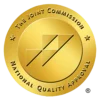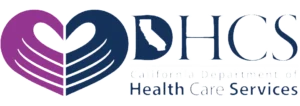Drug overdose is a serious and potentially fatal medical emergency that occurs when someone takes more than the recommended or prescribed amount of a drug. It can happen to anyone, regardless of age, gender, or socioeconomic status. Overdoses can occur with both legal and illegal drugs, including prescription medications, over-the-counter medicines, and illicit substances.
Understanding the signs of an overdose can save someone’s life and in this guide, we break down everything you need to know and the next steps. It’s important to get the proper help needed to overcome addiction, live a better life, and avoid overdoses. Contact our team today to learn more about addiction treatment services and programs.
The impact of an overdose can vary significantly depending on the substance involved, the amount taken, and the individual’s health condition. Key factors such as body weight, age, and tolerance levels also play critical roles in how the body responds to excessive substance intake. For instance, a person with a history of substance use may develop a higher tolerance, potentially leading them to consume larger doses, which increases the risk of overdose. Moreover, the presence of other substances in the body, such as alcohol or other drugs, can complicate the situation further, leading to unpredictable interactions that can exacerbate the effects of the primary substance.
Common Substances Involved in Overdoses
- Opioids (e.g., prescription painkillers like oxycodone, heroin)
- Benzodiazepines (e.g., diazepam, alprazolam)
- Cocaine and other stimulants
- Alcohol
- Street drugs (e.g., methamphetamine, synthetic cannabinoids)
- Over-the-counter medications (e.g., acetaminophen, cough syrups)
Each of these substances poses unique risks and can result in severe complications, including respiratory failure, cardiovascular issues, and coma. Understanding the substances involved is pivotal for appropriate responses in overdose situations. For example, opioid overdoses may require the administration of naloxone, a medication that can rapidly reverse the effects of opioid toxicity.
In contrast, benzodiazepine overdoses may necessitate supportive care and monitoring, as there is no specific antidote available. Additionally, the growing trend of polysubstance use, where individuals combine multiple drugs, has made overdose scenarios increasingly complex, often leading to more severe health crises that require immediate medical attention.
Recognizing the Signs of an Overdose
Identifying the physical signs of an overdose is crucial for timely intervention. Symptoms can vastly differ based on the substance taken but may generally include:
- Difficulty breathing or shallow breathing
- Extreme drowsiness or inability to wake
- Confusion or disorientation
- Seizures
- Blue or gray skin, particularly on lips and fingertips
- Nausea or vomiting
It is vital to be vigilant for these signs, especially if someone exhibits drastic changes in behavior or physical condition after using a substance. In many cases, the onset of these symptoms can be rapid, making it imperative to act quickly. For instance, a person who has ingested opioids may initially appear relaxed but can soon progress to a state of unresponsiveness.
The presence of pinpoint pupils can also be a telltale sign of opioid overdose, further emphasizing the need for immediate medical assistance. Recognizing these early warning signs can mean the difference between life and death, underscoring the importance of awareness and education surrounding substance use.
Along with physical symptoms, certain behavioral signs can indicate a potential overdose situation. These may include:
- Unresponsiveness to stimuli (such as shaking or loud noises)
- Sudden changes in mood or extreme agitation
- Loss of coordination or difficulty walking
- Paranoia or hallucinations
Behavioral symptoms may not always accompany physical ones, so it is essential to assess the situation comprehensively to identify possible overdose scenarios. For example, a person experiencing an overdose may exhibit erratic behavior, such as rapid speech followed by sudden silence, or they may seem overly animated one moment and completely withdrawn the next.
These fluctuations can be alarming and may indicate that the individual is struggling to maintain control over their mental state. Additionally, the presence of paranoia or hallucinations can lead to dangerous situations, not only for the individual but also for those around them. Friends and family must recognize these signs and understand that they may indicate a serious medical emergency requiring immediate action.

Immediate Actions to Take During an Overdose
If you suspect that someone is experiencing an overdose, your priority should be to ensure safety. Here are the steps you can take:
- Stay calm and assess the situation.
- Move the individual to a safe location away from any potential hazards.
- Try to keep the person awake and responsive if possible, by speaking to them or gently shaking them.
- Position the person on their side to prevent choking in case of vomiting.
These actions can be crucial in maintaining the individual’s safety until professional help arrives. It’s also important to monitor their breathing and pulse closely. If you notice any changes, be prepared to notify responders when they arrive. This information can be vital for medical personnel, as it helps them understand the severity of the situation and the type of assistance that may be required.
In addition to these immediate actions, consider gathering any substances or medications that the individual may have taken. This information can be invaluable for healthcare providers, as it allows them to administer the appropriate antidotes or treatments more effectively. If you need clarification about what was ingested, try to find any packaging or labels that could help identify the substance involved.
It is imperative to contact emergency services immediately if you suspect an overdose. Do not hesitate to call for help if:
- The person is unresponsive or unconscious.
- Their breathing is irregular or has stopped.
- They exhibit seizures or convulsions.
- There are signs of severe physical distress, like chest pain or severe nausea.
Timely intervention can be the difference between life and death, making it crucial to err on the side of caution and seek medical help whenever an overdose is suspected. In some cases, administering naloxone, an opioid overdose reversal drug, can be lifesaving if the overdose involves opioids. It’s beneficial to familiarize yourself with how to use naloxone, as it can be administered intranasally or via injection, and having it on hand can be a critical resource in emergencies.
Moreover, while waiting for emergency services to arrive, continue to reassure the individual and keep them engaged if they are conscious. This can help prevent them from slipping into unconsciousness and can also provide emotional support during a frightening experience. Remember, your presence and calm demeanor can significantly affect how they respond to the situation, potentially stabilizing their condition until professional help takes over.

Medical Treatment for Overdose
Emergency medical personnel play a vital role in overdose emergencies, utilizing their training to assess and stabilize patients. Upon arrival, they will:
- Quickly evaluate the patient’s condition, including vital signs.
- Administer appropriate antidotes, if applicable (e.g., naloxone for opioid overdoses).
- Provide oxygen or other supportive care as needed.
Due to their expertise, these professionals can manage the complexity of overdose responses, often using advanced medical equipment to ensure the patient’s safety. Their training includes recognizing the signs of various types of overdoses, whether they stem from prescription medications, illicit drugs, or even alcohol. This knowledge allows them to make rapid decisions that can be life-saving.
Additionally, emergency medical personnel are trained to communicate effectively with bystanders and family members, providing reassurance and gathering critical information about the patient’s medical history and substance use, which can significantly influence treatment decisions.
Once transported to the hospital, patients will undergo a comprehensive evaluation. Hospitals typically implement the following interventions:
- Full medical assessment, including blood tests to determine the substance involved.
- Administration of intravenous fluids and medications to counteract the effects of the overdose.
- Continuous monitoring of heart rate, oxygen levels, and other vital signs.
These procedures aim to stabilize the patient and minimize the risk of long-term damage caused by the overdose. In addition to these immediate interventions, hospitals often have protocols in place for psychological evaluation and support, recognizing that substance use disorders are complex issues that require comprehensive care. Patients may also be referred to specialized addiction services for further treatment, which can include counseling and rehabilitation programs designed to address the underlying causes of substance abuse.
This holistic approach not only focuses on the physical recovery from an overdose but also aims to provide the necessary support for long-term recovery and prevention of future incidents.




